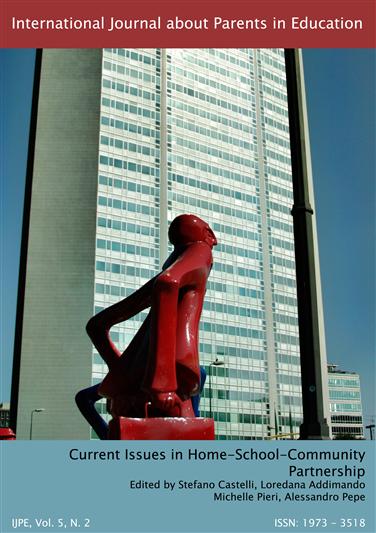Home-School Relationships in Primary Schools Parents’ Perspectives
DOI:
https://doi.org/10.54195/ijpe.18176Abstract
This paper presents the results from the second phase of a case study exploring home-school relationships in Cyprus based on parents’ perspectives. Interviews with parents indicated that they understood that home-school co-operation might benefit children’s attainments, emphasising the family’s role in education and in formation of character. Parents confirmed that current home-school relationships were limited to parents’ meetings and routine communication with teachers. Many parents however emphasised that the nature of home-school relationships depended upon the teachers’ approach and suggested that teachers should initiate more contact and increase the frequency of meetings. Many parents also appeared to be critical of other parents who were seen to create problems and not accept teachers’ views. This suggested that improvement of home-school relationships would be challenging and could vary from a parent to parent. The relationship between school culture and orientation of the family to that culture is not straightforward and mediated implicitly through the child’s social behaviour and academic achievement. The current situation in Cyprus suggests that school teachers’ bring two key constructs to home-school relations: one relates to children’s conduct, character and manners; the other to learning, acquisition of knowledge and academic attainment. Where there are concerns about either of these, teachers regard it as the parents’ responsibility to address them. Parents meanwhile acknowledge the dominant role of teachers in defining the home-school relationship and accept that the nature of the relationship depends upon the parent as well as the teacher. However, they would welcome more opportunity to renegotiate this role.Downloads
Published
2023-11-11
Issue
Section
Articles
How to Cite
Home-School Relationships in Primary Schools Parents’ Perspectives. (2023). International Journal about Parents in Education, 5(2). https://doi.org/10.54195/ijpe.18176





